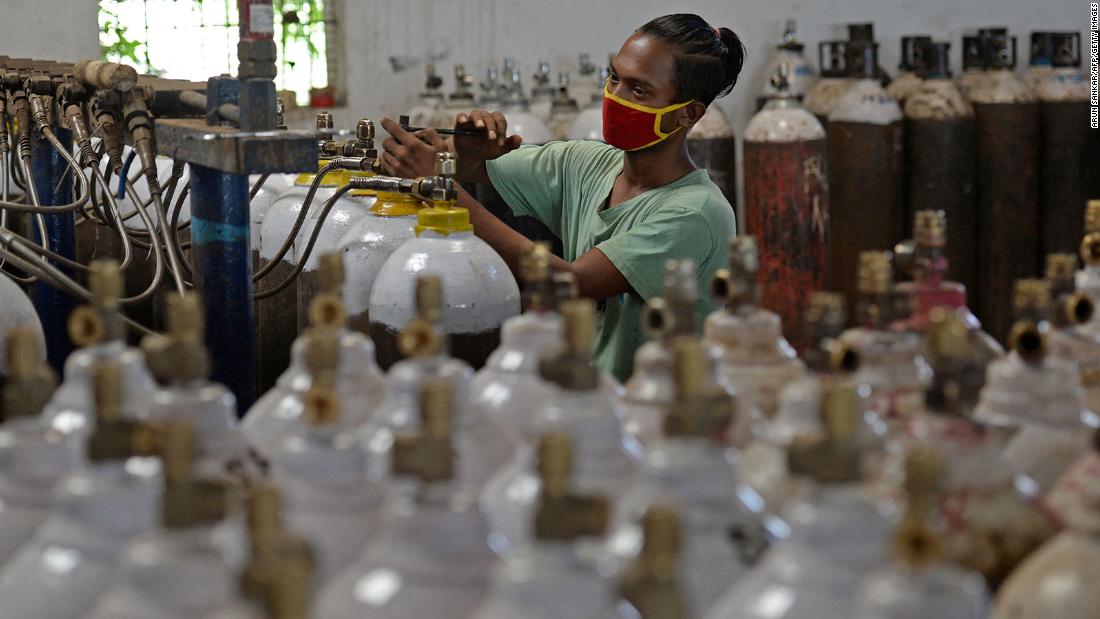That's why India's Covid outbreak is a global problem that needs a coordinated response.
Some countries are already scrambling to send supplies.
US oxygen concentrators -- medical devices that compress oxygen from the air -- arrived earlier this week, and on Wednesday the UK, Italy and Germany committed more medical equipment, as Russian planes took off from Zhukovsky for Delhi carrying medicine, monitors and ventilators.
While the immediate priority is saving the lives of those already sick, vaccinating the country is considered crucial to stop the virus from spreading. But, despite being home to the world's biggest vaccine producer, India doesn't have enough doses, and there's no fast and simple way to make more.
Western countries have been criticized for vaccine stockpiling, but on Wednesday, British Health Secretary Matt Hancock said the UK didn't have any spare vaccines to send.
US President Joe Biden said on Tuesday he had spoken with Indian Prime Minister Narendra Modi and confirmed the US intends to send coronavirus vaccines to India. Earlier in the week, the US said it would share
60 million AstraZeneca doses with other countries, but didn't specify which nations or when. Delivering them could take months, the White House warned.
An equitable distribution of the vaccine around the world is essential, said Dr. Anthony Fauci, director of the US' National Institute of Allergy and Infectious Diseases.
"Because we're all in this together. It's an interconnected world. And there are responsibilities that countries have to each other, particularly if you're a wealthy country and you're dealing with countries that don't have the resources or capabilities that you have," he
told The Guardian earlier this week.
If the Indian outbreak can't be contained and spreads to neighboring countries with low vaccine supplies and weak health systems, experts warn the world risks replicating scenes witnessed in India -- especially if newer, potentially more contagious variants are allowed to take hold. And, as India has a leading role in making vaccines for other nations, failing to stop its spread there could endanger the vaccine rollout worldwide. ...




Recent Comments